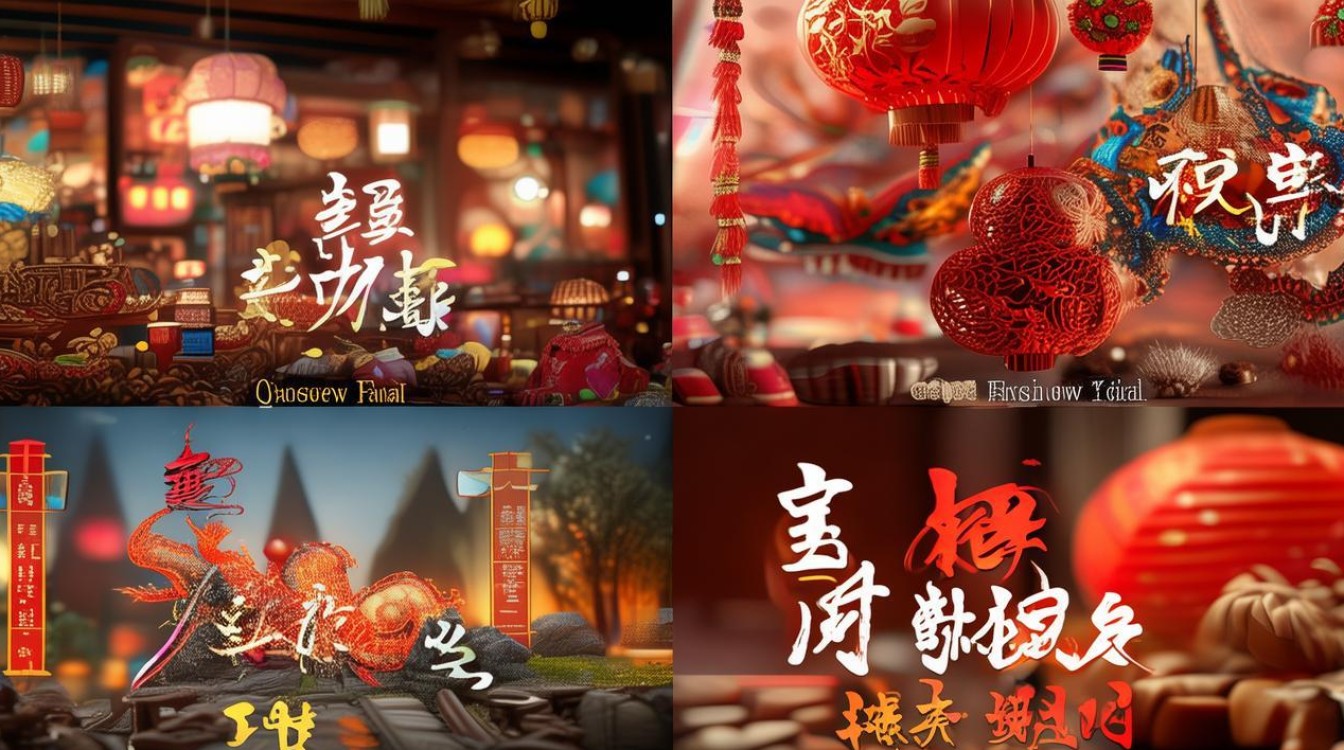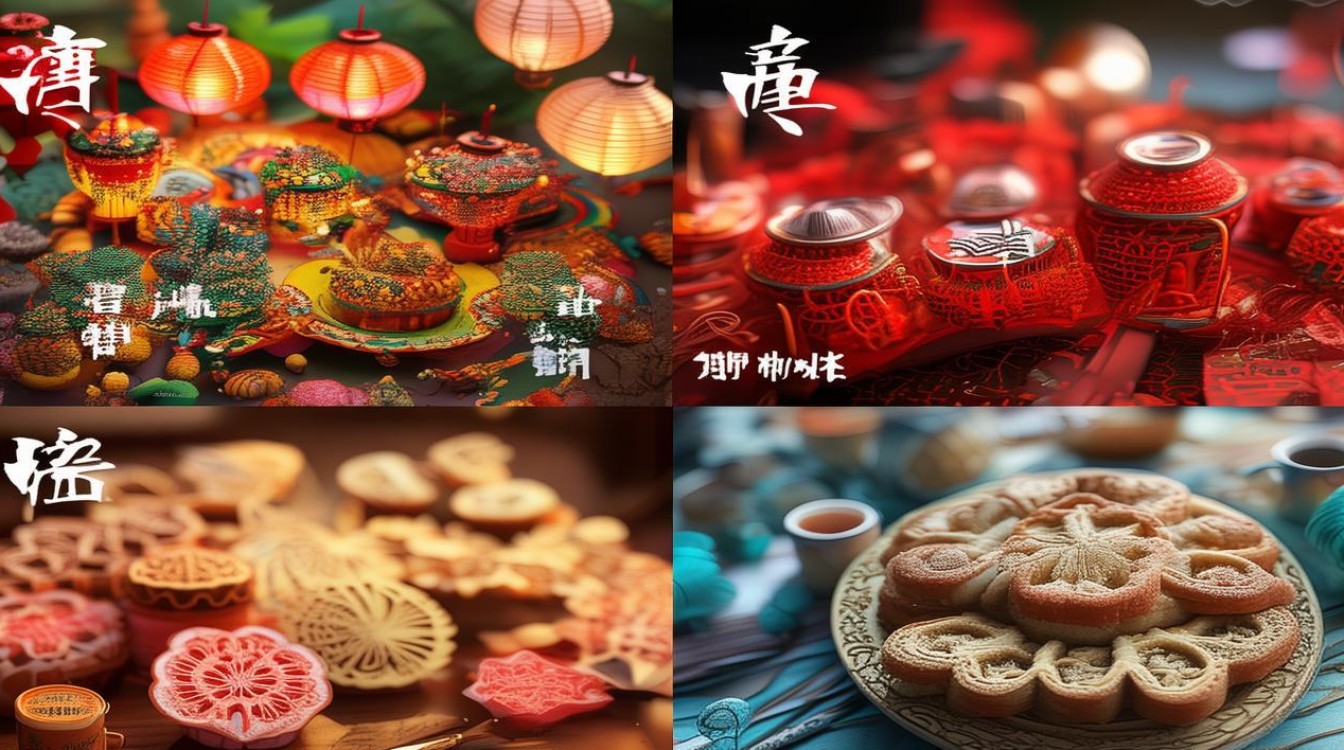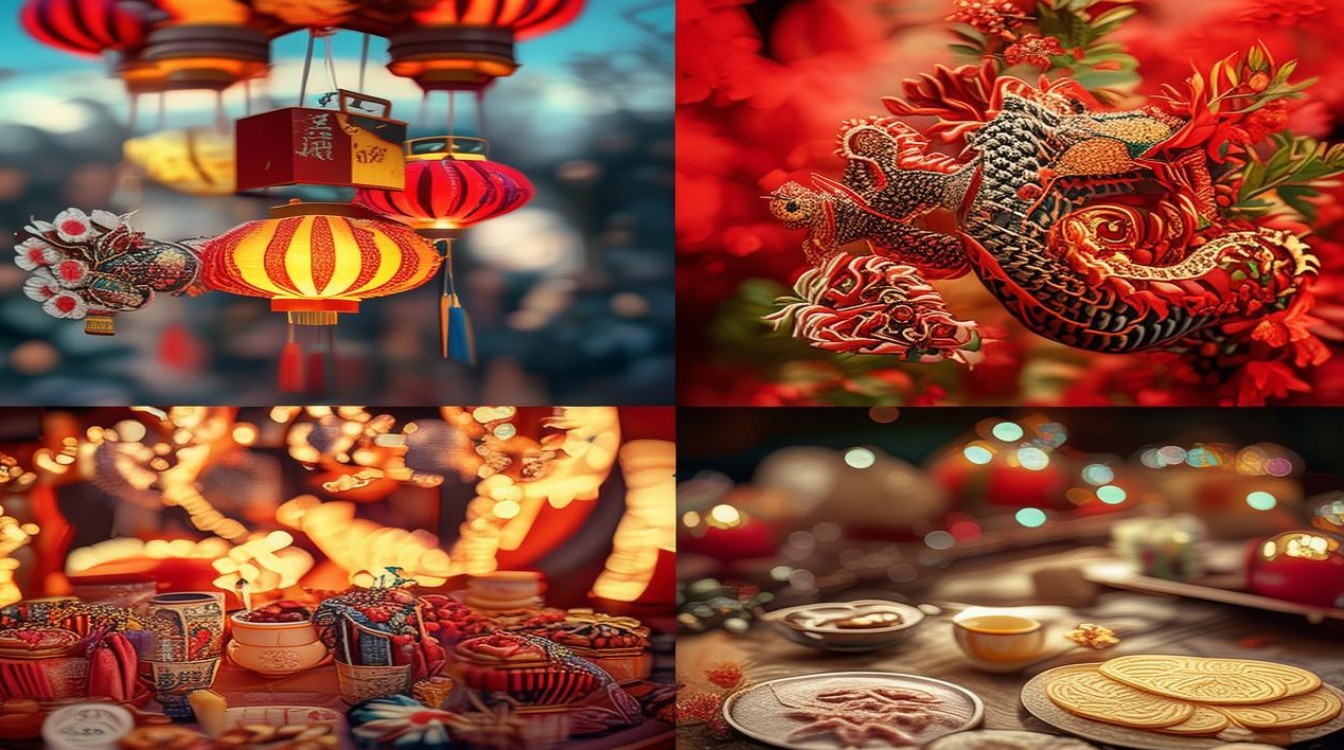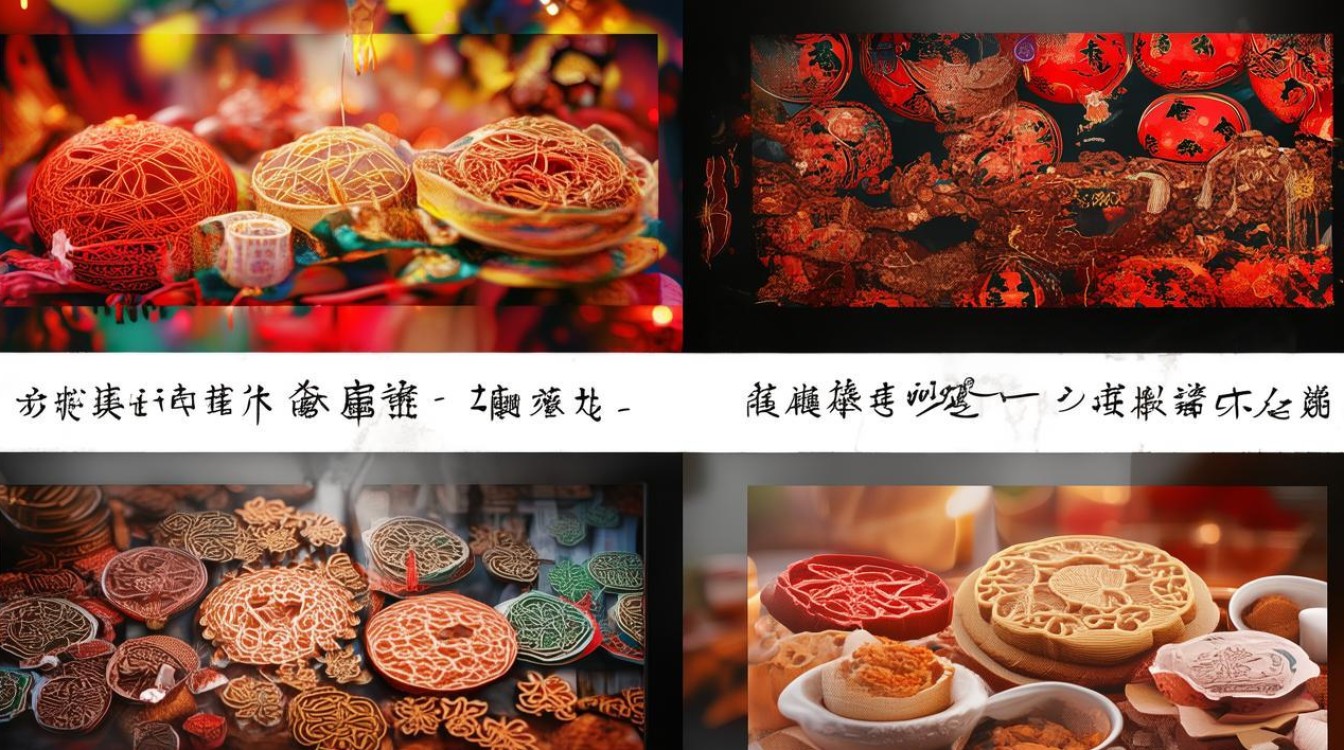Spring Festival (春节 – Chūn Jié)
The Spring Festival, also known as Chinese New Year, is the most important holiday in China. It marks the beginning of the lunar new year and is a time for family reunions, feasting, and celebrations.

- Key Customs:
- Reunion Dinner (年夜饭 – Nián Yè Fàn): Families gather for a lavish meal.
- Red Envelopes (红包 – Hóng Bāo): Elders give money in red packets for good luck.
- Fireworks & Lion Dances (舞狮 – Wǔ Shī): To ward off evil spirits.
Lantern Festival (元宵节 – Yuán Xiāo Jié)
Falling on the 15th day of the first lunar month, the Lantern Festival marks the end of the Spring Festival celebrations.
- Key Customs:
- Lantern Displays (赏花灯 – Shǎng Huā Dēng): Streets are decorated with colorful lanterns.
- Eating Tangyuan (汤圆 – Tāng Yuán): Sweet glutinous rice balls symbolizing family unity.
Qingming Festival (清明节 – Qīng Míng Jié)
Also called Tomb-Sweeping Day, this festival is a time to honor ancestors by cleaning graves and making offerings.
- Key Customs:
- Tomb Sweeping (扫墓 – Sǎo Mù): Families visit cemeteries to pay respects.
- Spring Outings (踏青 – Tà Qīng): Enjoying nature as the weather warms.
Dragon Boat Festival (端午节 – Duān Wǔ Jié)
Held on the 5th day of the 5th lunar month, this festival commemorates the poet Qu Yuan and features dragon boat races.

- Key Customs:
- Dragon Boat Racing (赛龙舟 – Sài Lóng Zhōu): Teams paddle to the rhythm of drums.
- Eating Zongzi (粽子 – Zòng Zi): Sticky rice dumplings wrapped in bamboo leaves.
Mid-Autumn Festival (中秋节 – Zhōng Qiū Jié)
Celebrated on the 15th day of the 8th lunar month, this festival is all about moon appreciation and family gatherings.
- Key Customs:
- Mooncakes (月饼 – Yuè Bǐng): Sweet pastries with various fillings.
- Moon Gazing (赏月 – Shǎng Yuè): Families admire the full moon together.
Double Ninth Festival (重阳节 – Chóng Yáng Jié)
On the 9th day of the 9th lunar month, this festival focuses on respecting the elderly and climbing mountains for good health.
- Key Customs:
- Mountain Climbing (登高 – Dēng Gāo): Symbolizing rising above challenges.
- Chrysanthemum Wine (菊花酒 – Jú Huā Jiǔ): Believed to bring longevity.
Winter Solstice Festival (冬至 – Dōng Zhì)
The shortest day of the year is celebrated with warmth and family meals.

- Key Customs:
- Eating Dumplings (饺子 – Jiǎo Zi): Common in northern China.
- Tangyuan in the South (汤圆 – Tāng Yuán): Symbolizing reunion.
Laba Festival (腊八节 – Là Bā Jié)
Held on the 8th day of the 12th lunar month, this festival involves eating Laba porridge for good fortune.
- Key Customs:
- Laba Porridge (腊八粥 – Là Bā Zhōu): A mix of grains, beans, and dried fruits.
Little New Year (小年 – Xiǎo Nián)
A prelude to the Spring Festival, this day involves cleaning and offering sacrifices to the Kitchen God.
- Key Customs:
- Offering Sweets to the Kitchen God (祭灶 – Jì Zào): To ensure favorable reports to heaven.
Chinese Valentine’s Day (七夕节 – Qī Xī Jié)
Based on the legend of the Cowherd and Weaver Girl, this festival falls on the 7th day of the 7th lunar month.

- Key Customs:
- Praying for Skills (乞巧 – Qǐ Qiǎo): Young women traditionally prayed for weaving talents.
Understanding these festivals helps bridge cultural gaps and promotes appreciation for Chinese traditions. Whether you're a language learner, traveler, or cultural enthusiast, knowing these terms enriches your experience of China's vibrant heritage.
By sharing accurate translations and meaningful customs, we ensure these traditions continue to inspire global audiences.

